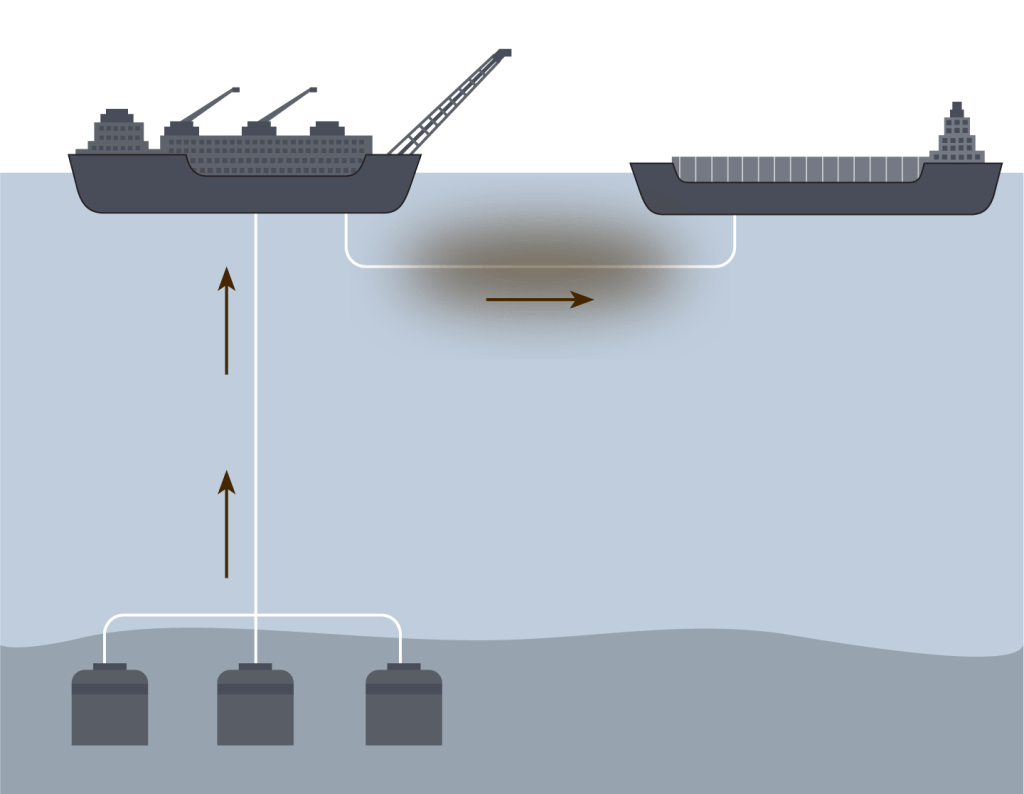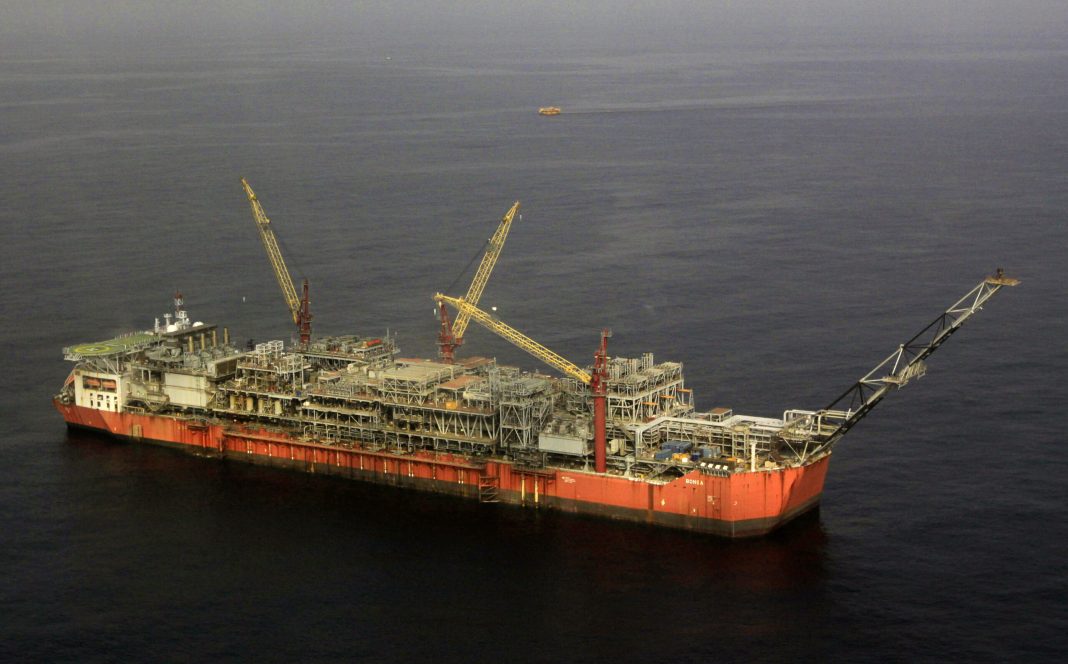Off the coast of Nigeria, one of the world’s largest oil production ships, called the Bonga, was taking oil from a field on the ocean floor and transferring it to a tanker ship. Such transfers are routine in the offshore oil industry, but something went wrong on the Bonga, owned by energy giant Shell.
A major leak began in one of the lines that connected the two vessels. Over the next three hours, the crew detected that more oil was being pumped from the ship than the tanker was receiving. Another hour passed before an oily sheen was spotted on the water. An hour after that, the crew member in charge of the fueling shut off the flow.
By then, about 40,000 barrels of oil had escaped into the Atlantic Ocean, according to an English High Court evaluation, making the December 2011 incident one of Nigeria’s worst spills in a decade. At the height of the spill, an oil slick spread over 685 square miles (1,776 square kilometers), twice the size of New York City. Nigerian regulators later fined the subsidiary Shell Nigeria Exploration and Production Company (SNEPCo) $3.6 billion, an amount being appealed today.
Now a confidential review of Shell’s fleet of production ships, obtained by The Associated Press, plus internal company safety surveys and interviews with two whistleblowers, show that as recently as three years ago — almost 11 years after the Bonga spill — there were safety issues with the fleet, including the Bonga. The 2022 review found fault with the same systems involved in the Bonga spill. The whistleblowers said the problems risk another Bonga-type disaster.
Problems flagged with the Bonga
Oil production ships like the Bonga are a critical part of the offshore oil industry. Often permanently moored in one location, they take oil from wells on the ocean floor and transfer it to tankers.
The 2022 review of the Bonga was an attempt to address maintenance and safety problems in Shell’s oil production ship flotilla. It was authored by Shell senior maritime auditor Zubair Ali Khan. It found issues on several ships, ranging from corrosion to bad upkeep and poor firefighting systems, and cited a “lack of clear and established standards and processes.”

For example, the report noted “continuously deficient” systems for oil transfer and firefighting and lifesaving equipment. Oil transfer systems are what had failed in the massive 2011 spill, and in 2022, the problems on the Bonga with oil transfer systems were deemed “high risk.” Replying to a LinkedIn message, Khan declined to comment.
Tony Cox, an accident investigator with decades of experience in the offshore oil industry, said it was concerning that transfer problems persisted on the Bonga 11 years after the giant spill given that transfers are a “recognized hazard” and “well known to be a potential point of spillage.”
A Shell spokesman said by email that the company’s safety record was continuously improving. Serious accidents aboard this ship have gone down from one per year on average to zero since 2018, Shell said, with less serious incidents reduced by 70% and spills by 90% since 2020. A total of 369 pieces of critical safety equipment were not in satisfactory condition in 2014, the spokesman said, dropping to two last year.
Shell did not respond when asked if all the recommendations in the report were adopted.
The review cited problems with other ships
Beyond the Bonga ship, the 2022 internal safety report said there were other “recurring incidents.”
The report described “severe corrosion” in pipes and protective barriers around oil tanks in the vessel Fluminense, off Brazil.
Two workers were left “with moderate to severe burns” after an incident on a vessel off the U.S. coast in 2016.
There were “degraded facilities” on the gas-producing ship Prelude anchored off Australia, where fire broke out in 2021. In 2023, more than a year after the safety report, problems on the Prelude persisted, according to Australian regulators who found health and safety violations related to “exposure to chemicals and risk of an explosion.” They ordered improvements.
In the case of the Prelude, Shell said a dedicated local team of safety engineers and experts looked after the vessel but didn’t provide more details.
Other incidents have been reported by regulators or in the press. For example, another Shell ship off Nigeria, the Sea Eagle, began to take on seawater in 2022 and needed urgent repairs, something Cox said was highly unusual for floating production vessels.







